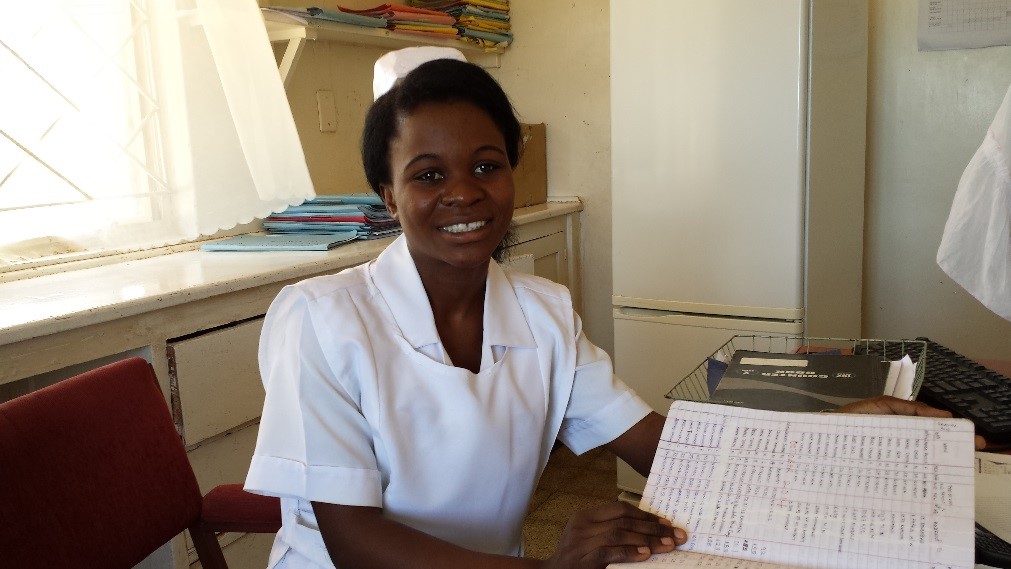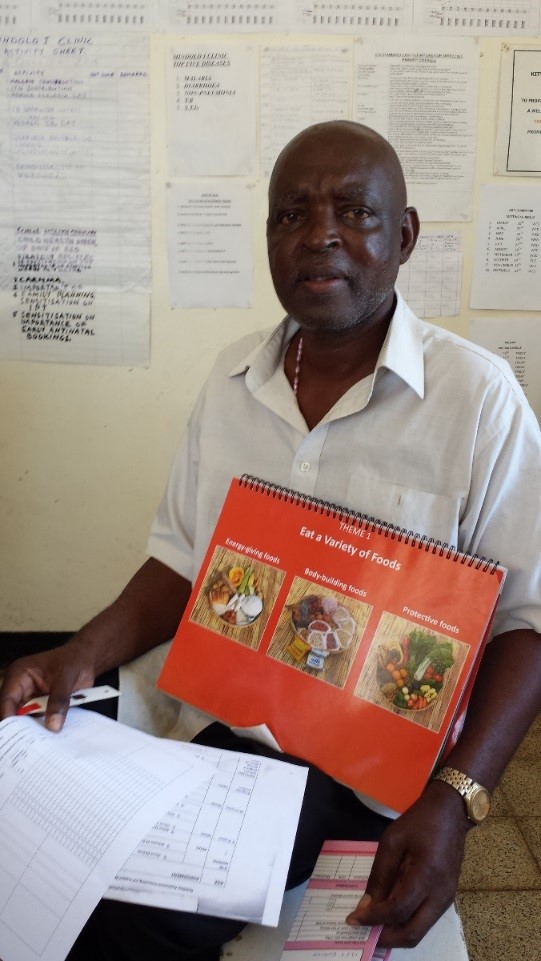Celebrating World Health Worker Week: Empowering health workers to improve health and nutrition services for males and females
By Elizabeth Romanoff Silva on April 9, 2015
Last month I had the opportunity to travel to Zambia to provide gender technical assistance to the USAID ASSIST-supported nutrition assessment, counseling and support (NACS) services. Gender inequality is a major factor affecting vulnerability to malnutrition, especially for people living with HIV, so I was especially interested in working with health workers to identify the different issues preventing males and females from accessing services, issues affecting their nutrition status, and to identify the root causes preventing improved nutrition among women, men, girls and boys, and developing changes to test to find solutions to these issues.
HIV is more prevalent among women and girls than men and boys in Zambia, with rates among women and girls 15-49 estimated at 16.1%, versus 12.3% for men and boys, with the gap more profound between adolescent girls and boys. Differing levels of susceptibly to HIV, different health-seeking behaviors and access to food and services based on the roles and expectations of males and females within households and communities contribute to gaps in health and nutrition status among males and females and of different ages, and should be taken into account in the planning, implementation and monitoring and evaluation phases of NACS-supported programs.
Gender issues within NACS services can include that health-seeking behaviors of males lead to them being less likely to access services, yet they may experience improved nutrition substantially quicker than women once in treatment due to food allocation within families and because women can be more likely to share food supplements with family members. Males also tend to be less involved in food preparation within families, so including female partners and wives in nutrition counseling can be more effective to improve males’ nutrition status.
At WI-HER LLC, we recognize that in order to identify and respond to differing gender-related issues, it’s critical that data be systematically collected and analyzed sex disaggregated to identify gaps in how males and females access and benefit from nutrition services, rates of malnutrition, and to identify gaps to be able to respond appropriately and in a culturally-sensitive way, to close gaps and improve nutrition and health outcomes.
Addressing gender discrimination and inequality in health programs and services for patients is critical, but it’s also important to recognize that gender issues and discrimination within the health workforce is also an issue that is central to strengthening health systems and improving health worker performance. Gender issues within the health workforce can prevent efficient recruitment, training and can lead to higher rates of attrition, and to gender-based violence.

Promoting gender equality among a health workforce means ensuring that both women and men having equal opportunities to choose a health profession, to acquire essential skills and knowledge, and it means guaranteeing they are hired and paid fairly, that both male and female health workers have equal treatment and opportunities to progress in their career, that they can work in an environment free from violence.
Activities that redefine cultural norms that may keep men from entering jobs in which there are more females, such as nursing and HIV care, or instating policies that recognize the additional burdens that female health workers can face including childbirth and caregiving, and promoting female workers to enter and grow in their careers in the health field are examples of gender-sensitive human resource practices targeting the health workforce.

While providing gender technical support in Zambia, I had the opportunity to work with both female and male health workers, and I asked them about the challenges and rewards of the work they do. A nurse at an ASSIST-supported health facility in Kitwe, Zambia, responded about the challenges she faces in her work. “We are very few health workers, and so many patients. We have no space to counsel patients on nutrition.” She added, “There is also so much paperwork, that it takes a lot of our time.” In terms of the aspects of her job that she most likes, her answer was that she takes great pleasure in helping people and observing improved health statuses of HIV-positive patients. “When they first come in, they are sick and thin and they don’t look well. But after some months, they look good, and this is so rewarding.”
ASSIST is supporting health workers at clinics in Kitwe to improve their record keeping by standardizing and simplifying data entry forms to track the patients seen daily, and also provides support to tally daily numbers. This has contributed to improved record keeping. The facility is currently collecting data both sex and age disaggregated, but they still face challenges in analyzing the data to identify gaps, and ASSIST is providing support in that area.
A voluntary community health worker in Kitwe shared the most challenging aspect of his job. “When I determine that someone is malnourished, there isn’t always nutrition supplements to give them. I tell them they need to eat more nutritious food from a variety of food groups and I show them the information, but they can’t do it because they don’t have the money to buy the food.” He noted that he talks with people about creating their own small gardens to grow foods, but it’s not enough.
When asked what he likes about the job, he said that he has learned skills about how to check malnutrition status and how to ensure proper nutrition. “I’ve taken the skills I’ve learned here and used them in my own home with my family. I am the father of 10 children.” To respond to the need to improve food security among HIV-positive families, the USAID ASSIST Project is linking up with partners including FHI’s LIFT Project to improve food security for HIV positive patients and their families.
During World Health Worker Week, I celebrate the tireless efforts of the health workers I met in Zambia and the millions of health workers around the world who play a vital role in improving health systems and saving lives, and who overcome challenges and adversity every day.